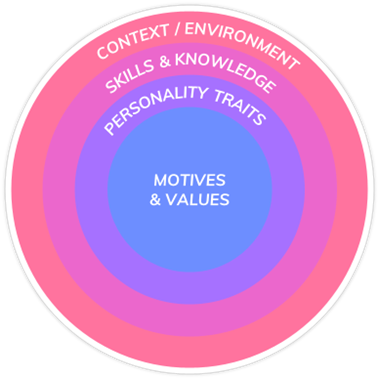With fierce competition in the current talent shortage, organisations are under huge pressure to get talent into businesses quickly. But in the pressure to fill these roles, so many are getting it wrong; 30% of employees are leaving a job within the first 90 days and it’s costing companies upwards of three times the salary per bad hire.
But the true cost extends far beyond the financial value of hiring and onboarding someone (training, job adverts, search fees) and can damage the fabric of the business in areas including:
- Low productivity and morale
- Teams spread too thinly whilst they cover for the missing team member
- The time to place adverts, interview and onboard new hires
- Impact on reputation and brand due to a high turnover of staff
This only increases with senior roles where the impact of getting it wrong is felt the hardest. So, getting is right first time is imperative which means you need to spot the signs during the recruitment and interview stages, before the individual actually starts working for you.
There are two parts to this:
- Ensuring candidates understand the role and organisation so that they understand what will be required of them. This might include reviewing your employee value proposition (EVP), the job role and how its advertised and the interview process to ensure that they reflect the reality of working in your organisation.
- Ensure the organisation truly understands the candidate they’re considering employing.
The latter can be more difficult. What do you do when two candidates bring similar technical know-how and leadership behaviours? How do you know who will perform best in the role? Even if you only have one candidate you’re considering, how can you know if they’ll perform in the role or fit in with your organisation? Can you guarantee that your new hire will be successful?
There are four key consideration to help you answer this.
 |
|---|
| The context A great leader in one role may be less successful in another context. Skills and knowledge For example, a leader who lacks knowledge around diversity and inclusion may inadvertently exclude others through their actions and words. Traits Personality has a large impact on leadership behaviour. Some traits will be strengths, others may pose risks. Motives and values Understanding what motivates individuals and their behaviours can help determine their success. |
So, how can you get this information from a candidate during the hiring process?
Interviews will help scratch the surface of this, but with so many businesses getting this wrong, it’s clear more needs to be done. This is where assessment comes in…
Extensive research has shown that a combination of structured interviews alongside assessments and psychometric tests are the most predictive measures of on-the-job performance. For employers, this means you can predict with some accuracy if you’re making the right hire therefore minimising the chances of having to pay the price of getting it wrong. Here’s how:
It improves objectivity
Hiring purely based on interviews and looking over CV’s can lead to decisions being made on instinct. Psychometric testing removes this subjective decision-making nature and offers fairness, free of discrimination and bias, as all candidates take one standardised test.
It increases accuracy
Psychometric testing can allow a hiring company to assess a candidate’s abilities to analyse information, problem solve, make informed judgements, whilst also analysing their behavioural tendencies. Access to this data on all applicants allows the hiring company to make quick, scientifically-backed comparisons of candidates to find the most suitable.
It speeds up the process
Even smaller firms receive hundreds to thousands of applicants for open positions and the time that it would take to fairly look through all applicants is far too large. Psychometric testing allows companies to drastically reduce the size of applicant pools down to whatever size is manageable for the organization.
It improves candidate experience
An engaging recruitment process is one of the first opportunities to impress a candidate and attract top talent. Research shows candidates respond positively to the face validity and fairness to psychometrics. When it is a developmentally focused process, it is also an opportunity for them to understand how they operate and accelerate their onboarding into role.
Sound good?
At NSCG, our psychologist-led assessment is part of our executive search practice and complements our already robust selection process. If you’d like to discuss how we can help you hire the right people, please get in touch.
 |
Nicole Wade is a Director within the leadership consulting team at NSCG.
Learn more about Nicole here. |
|---|
